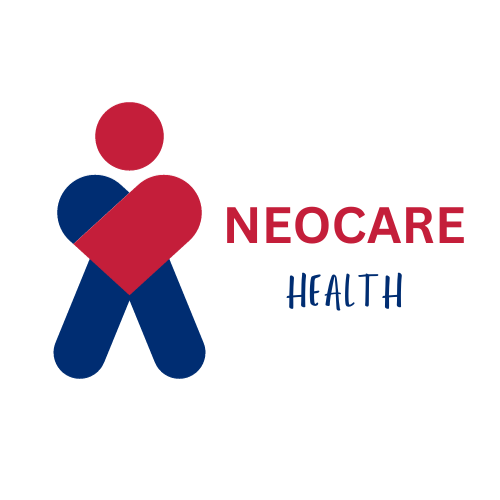24/7 Care and Monitoring: Providing Peace of Mind in Neonatal Services
Ensuring the health and safety of the newest members of our families begins with comprehensive neonatal care for newborn babies. This vital service not only addresses the immediate medical needs of these vulnerable patients but also provides peace of mind to concerned families. With the advent of advanced technologies and methodologies, the scope of neonatal care has significantly broadened, incorporating round-the-clock monitoring for newborns. This relentless commitment to vigilance is paramount in preempting and addressing any potential health issues that may arise during these critical early stages of life.
In this article, we will delve into the importance of 24/7 neonatal care, highlighting both the challenges and benefits from a medical perspective. We'll explore how continuous monitoring serves not just as a lifeline for infants but also as a crucial support for families in neonatal care, guiding them through what is often a tumultuous journey. By examining strategies for successful implementation, we aim to shed light on how healthcare providers can navigate parental concerns and expectations, ultimately ensuring that both newborns and their families receive the highest level of care.
The Importance of 24/7 Neonatal Care
Understanding the need for round-the-clock monitoring
The inception of Special Care Baby Units post-World War II marked a pivotal shift in neonatal care, recognising that a controlled environment could significantly boost the survival rates of vulnerable infants. This evolution underscored the critical need for round-the-clock monitoring in neonatal intensive care units (NICUs), where continuous assessment of vital signs plays a vital role in preempting health issues. Recent advancements have further highlighted the importance of constant vigilance, with studies showing that continuous monitoring can predict and prevent severe complications in preterm infants.
Benefits of constant professional presence for neonates
Transitioning to 24/7 in-house attending coverage in NICUs across the United States has been linked to improved patient outcomes and a reduction in emergency situations. This change reflects a growing understanding that continuous professional presence can significantly enhance the quality of care provided to newborns. For families, this means not only better health outcomes for their babies but also peace of mind knowing that expert care is always available. The presence of healthcare professionals round the clock facilitates immediate interventions, which can be crucial for neonates requiring intensive care.
Highlighting the evolution in neonatal care practices
From the mid-twentieth century's rudimentary approach to neonatal care to today's sophisticated NICUs, the journey has been transformative. The introduction of incubators and the emphasis on hygiene practices marked significant milestones in reducing infection rates among newborns. The shift in the 1970s towards involving families in the care process and individualising care plans further revolutionised neonatal care, demonstrating the importance of a holistic approach. Continuous monitoring technologies, such as glucose and temperature monitoring, have become integral to modern neonatal care, ensuring that at-risk neonates receive the attention they need to thrive.
Challenges and Benefits from a Medical Perspective
Balancing education, autonomy, and supervision for medical staff
Nurses working over 13-hour shifts have reported worse job outcomes and a decrease in patient safety compared to those on 8-hour shifts. This extended workload leads to a significant increase in burnout, dissatisfaction, and the intention to leave the profession. Importantly, the likelihood of nurses reporting frequent central line-associated bloodstream infections (CLABSIs) and complaints from patients or their families is notably higher with longer shifts. This presents a challenge in maintaining the quality of neonatal care, necessitating a balance between education, autonomy, and adequate supervision to mitigate these risks.
Improving patient outcomes through continuous care
The National Association of Neonatal Nurse Practitioners (NANNP) emphasises the importance of providing safe, ethical, and accountable care despite the challenges posed by fatigue and extended shift lengths. Fatigue negatively impacts healthcare recipients and providers alike, with neonatal nurse practitioners (NNPs) being equally affected. To improve patient outcomes, it is crucial for NNPs to integrate information from various sources, make sensible decisions, and formulate appropriate actions, especially in critical-care settings where alertness and vigilance are paramount.
Adapting to increased duty hours and supervision requirements
Extended work shifts in neonatal intensive care units (NICUs) have been associated with decreased levels of alertness and increased cognitive difficulties among nurses, impacting their physical health and leading to burnout. This affects job performance and the quality of nursing care, highlighting the need for strategies to adapt to the increased duty hours and supervision requirements. Research specific to the NNP role in relation to fatigue and shift length is needed to develop effective measures that ensure the well-being of both medical staff and patients in NICUs.
Navigating Parental Concerns and Expectations
Ensuring Peace of Mind for Parents
Parents face numerous challenges when their newborns are in the Neonatal Intensive Care Unit (NICU), from worrying about their infant's diagnosis to the uncertainties of the future and financial burdens. To address these concerns, it is crucial to provide constant support and clear communication. Many parents find solace in spiritual practices, family support, or distractions to alleviate their anxieties. A nationwide Swedish study highlighted that while overall satisfaction with neonatal care is high, discrepancies exist, particularly regarding participation and involvement. This suggests a pressing need to focus more on the care of extremely preterm infants to ensure their families' peace of mind.
Educational Support and Guidance for Families
Families, especially those with preterm or sick infants, face difficulties in developing relationships with their infants due to the NICU environment. Providing information in simple language about the infant's medical problems, care, and treatment is essential for parents to understand their infant's condition better. Encouraging parents to be present during medical ward rounds and involving them in their infant's care can significantly aid in this process. Additionally, offering anticipatory guidance throughout the infant's hospitalisation helps parents prepare for and contribute to their infant's care progression.
Tailoring Care to Meet Individual Family Needs
The NICU can be overwhelming for parents. Encouraging them to ask questions, take notes, and build relationships with medical staff can ease this process. Planning to be present during their baby's care activities allows parents to gradually take over their baby's care, fostering a stronger bond. Recognising and supporting parents' emotional needs is also vital, as having a sick or premature baby in the NICU can evoke strong emotions. Providing psychosocial support and education on necessary precautions, like mask usage, can further assist in tailoring care to meet each family's unique needs.
Strategies for Successful Implementation
Fostering Autonomy While Ensuring Patient Safety
- Emphasise Decision-Making Capacity: Understanding that decision-making capacity varies and is specific to each newborn's condition is crucial. It's about balancing the right to autonomy with the principles of beneficence and non-maleficence. Training for neonatal care teams should include how to assess this capacity effectively and when to involve ethics committees for guidance.
- Parental Involvement: Recognise parents as essential decision-makers for their children, especially when the child cannot make decisions. This involves educating parents to understand their infant's condition deeply and involving them in the care process, ensuring decisions are in the best interest of the child.
Case Studies: Successful Transitions to 24/7 Care Models
- Implementing Family-Centered Care (FCC): A steering group, including a head nurse and senior consultant neonatologist, was crucial in transitioning to a 24/7 care model with a focus on FCC. They provided theoretical and practical training to staff, emphasising safe skin-to-skin contact and parental involvement.
- Cultural and Practical Shifts: Utilising 'change agents' among experienced nurses helped in adapting new procedures and fostering a nurturing environment conducive to the holistic well-being of infants and families. This approach facilitated a smooth transition to the 24/7 care model.
Utilising Technology and Staffing Models for Optimal Care
- Incorporating Advanced Technology: Employing technical devices with built-in algorithms can help maintain preterm infants within safe ranges, minimising the occurrence and duration of injurious moments. Ongoing research aims to improve algorithms for early detection of conditions like sepsis, enhancing patient outcomes.
- Automated Regulation of FiO2: Trials are testing the effect of automated FiO2 regulation on long-term outcomes. While it reduces hyperoxemia, its effect on hypoxemia is limited, indicating the need for further improvement in algorithms and an integrated approach to oxygen and ventilation management.
- Staffing and Training Adjustments: To support the successful implementation of technology and ensure patient safety, adjusting work hours and training needs of the healthcare team is paramount. This includes developing strategies to optimise performance without compromising patient safety.
Conclusion
The exploration of 24/7 care and monitoring in neonatal services underlines the critical importance of continuous, expert care for the well-being and survival of newborns, particularly those facing medical challenges early in life. The advancements in technology and methodologies have significantly enhanced the ability to preempt and address health complications, offering not only improved outcomes for infants but also providing peace of mind for their families. By highlighting the evolution of neonatal care from its rudimentary beginnings to today’s sophisticated NICUs, and addressing the challenges and benefits from a medical perspective, this article underscores the imperative of constant vigilance and professional presence in these critical care environments.
Moving forward, it's clear that the journey toward enhancing neonatal care involves not only leveraging technological advancements but also addressing the needs and concerns of the nursing staff and the families involved. The strategies discussed for successful implementation, including fostering autonomy while ensuring patient safety and utilising innovative staffing and technology models, suggest pathways for continual improvement in the field. As we consider the future of neonatal care, the importance of ongoing research, adaptive healthcare approaches, and supportive environments for both families and healthcare professionals remains paramount in ensuring that every newborn receives the care and attention necessary for a healthy start in life.










